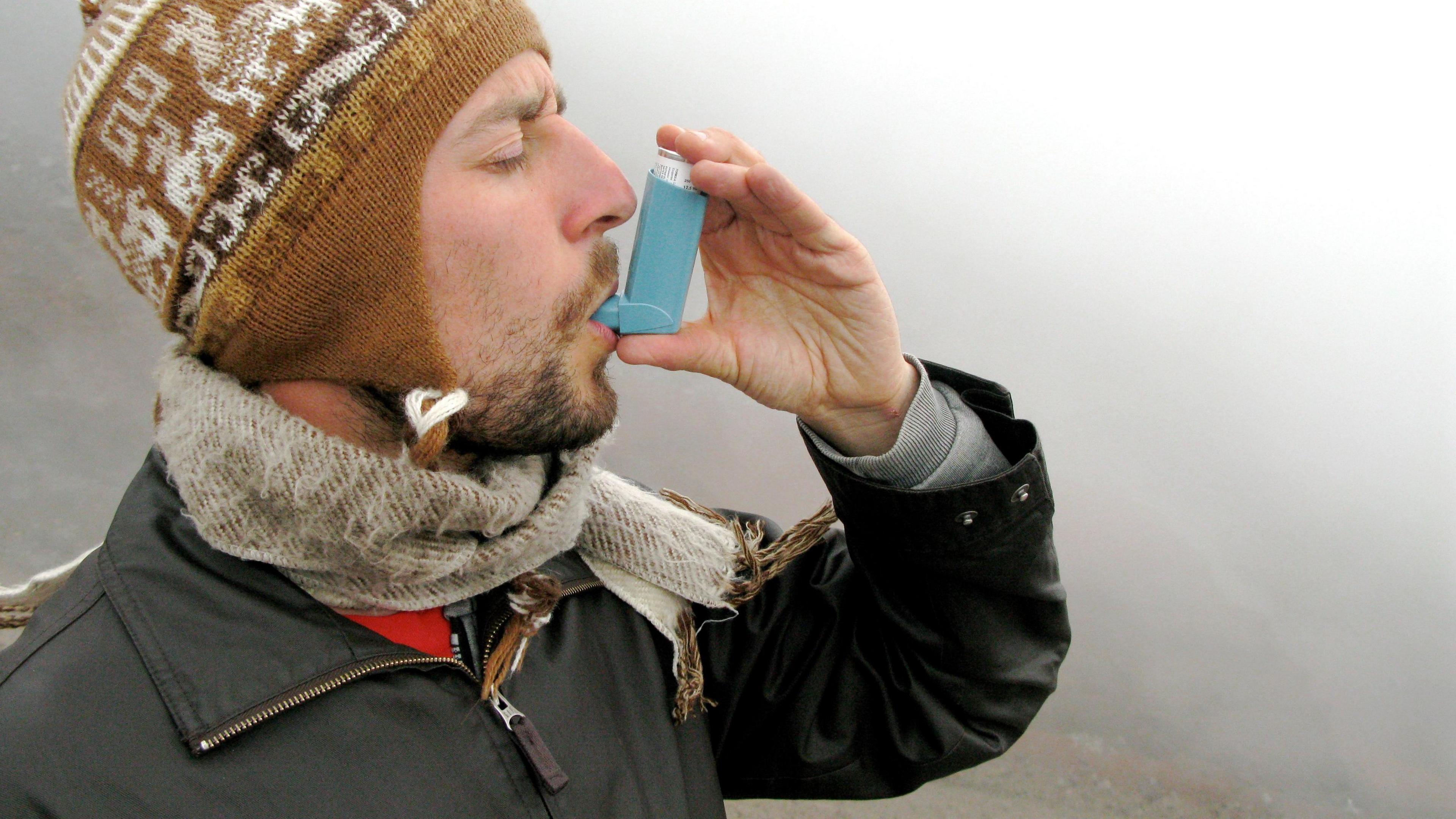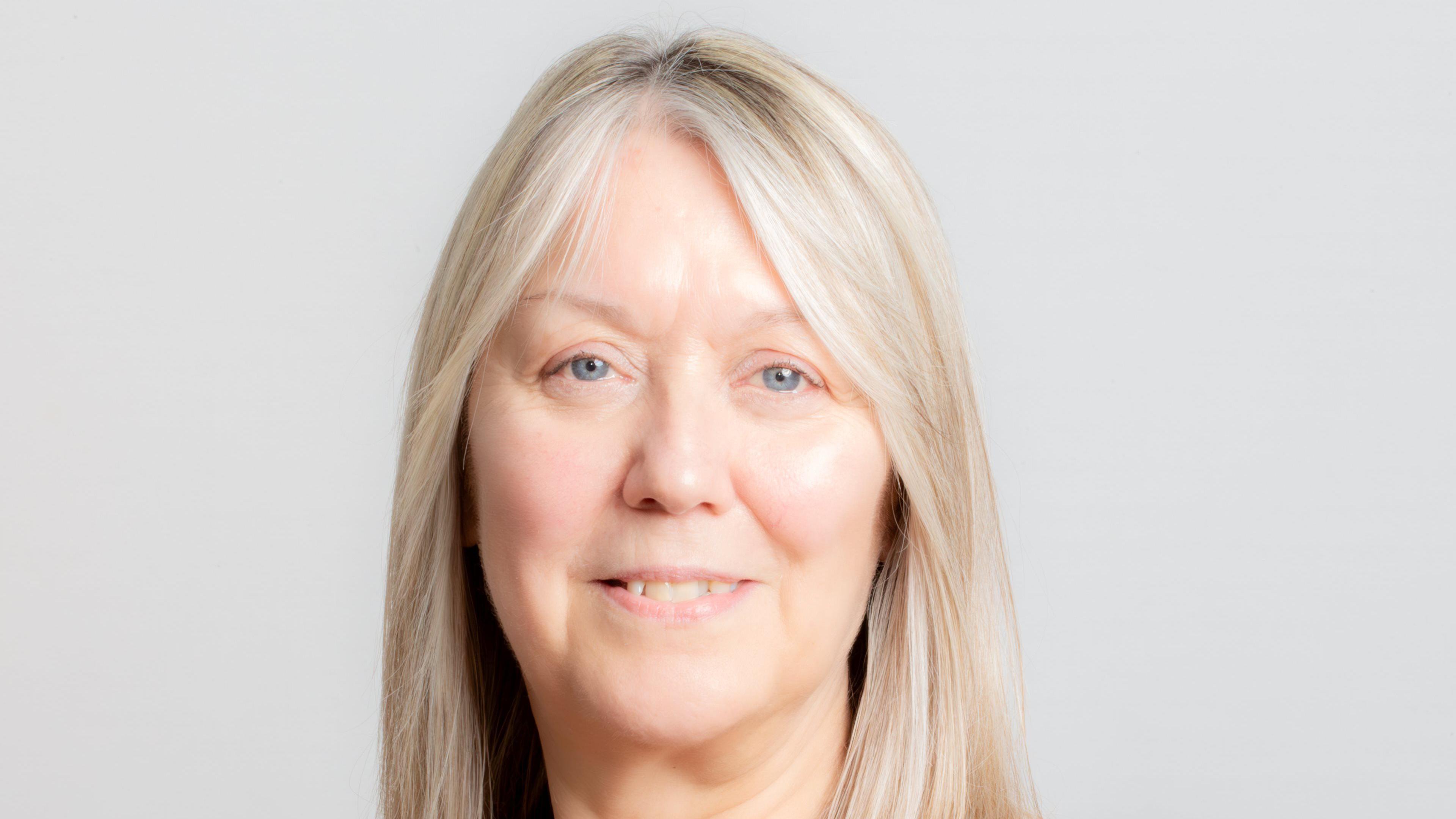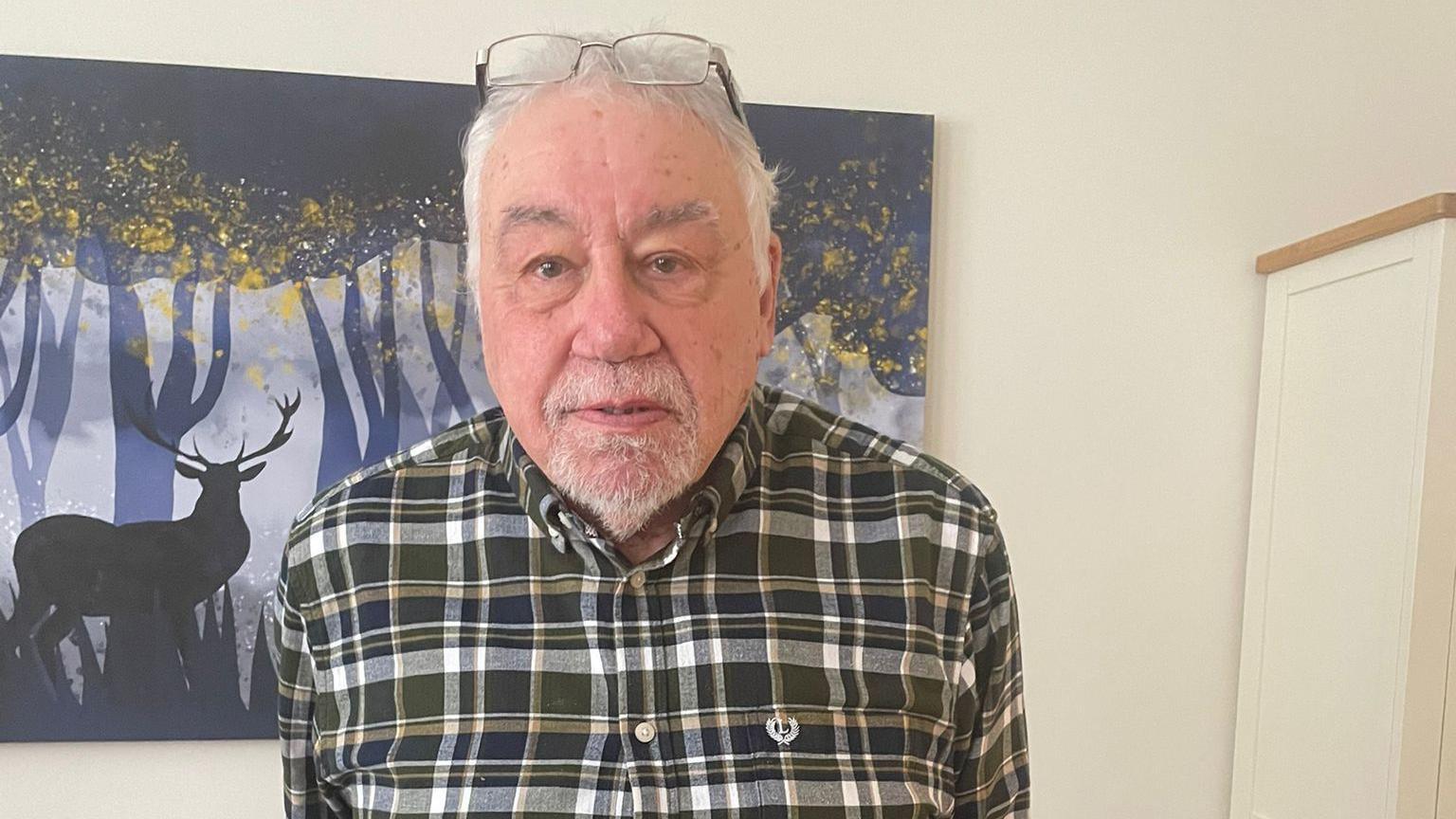First new asthma attack treatment in 50 years

- Published
Researchers say they have found the first new treatment for asthma attacks in 50 years.
The injection dampens part of the immune system that can go into overdrive in flare-ups of both asthma and a lung condition called chronic obstructive pulmonary disease (COPD).
Benralizumab is already used in the most severe cases, but the latest research suggests it could be used routinely for around two million attacks in the UK each year.
The research team at King's College London said the drug was a "game-changer" that could "revolutionise" care.
The findings stem from the realisation that not all asthma or COPD attacks are the same. Instead, different parts of the immune system are over-reacting in different patients.
"Now we can see there are different patterns of inflammation, we can be smarter and get the right treatment, to the right patient, at the right time," said Prof Mona Bafadhel, from King's.
Benralizumab targets a type of white blood cell - called an eosinophil - that can cause inflammation and damage in the lungs.
Eosinophils are implicated in about half of asthma attacks and a third of COPD flare-ups.
If such an attack - involving difficulty breathing, wheezing, coughing and chest tightness - cannot be controlled with regular inhalers then doctors currently prescribe a course of steroids.
The study, on 158 people, monitored patients for three months after treatment for a flare-up.
The results in The Lancet Respiratory Medicine found a treatment failure rate of:
74% when taking steroids
and 45% with the new therapy
People treated with the new therapy were less likely to be admitted to hospital, need another round of treatment or die.
Prof Bafadhel said this could benefit a huge number of people as two million attacks a year "is not a small number".
"This is a game-changer, we’ve not had a change in treatment for 50 years - it will revolutionise how we treat people when they’re really unwell," Prof Bafadhel said.
Volunteers also reported improved symptoms and a better quality of life on the new drug.

Alison Spooner has had asthma since childhood
Alison Spooner, who is 55 and from Oxfordshire, was one of those taking part in the trial. She has had asthma since childhood, but it became worse over the past five years and she's had three major attacks.
"They seemed to be getting worse, the severe lack of breath was quite frightening when you're gasping and there's nothing to gasp at," she told me.
Alison says she felt "drastically different" after having the injection and still uses her inhalers but "only because I've been told to".
"Unfortunately, no drug gets rid of asthma completely, but this is the nearest thing. It's a bit of a miracle actually," she adds.
'Massive promise'
Benralizumab is not ready for widescale use.
It will still take a larger trial, due to start in 2025 and which will last two years, to be certain of any benefit. Anybody who is already given these drugs should continue to follow their prescription.
That study will also have to assess cost-effectiveness since monoclonal antibodies, like this therapy, are expensive drugs.
But Dr Sanjay Ramakrishnan, from the University of Oxford, said the work so far "shows massive promise" and that treatment for COPD was "stuck in the 20th Century" despite being one of the leading causes of death worldwide.

Geoffrey Pointing said the new therapy did not have the side-effects that came with steroids
Long-term use of steroids is linked with side-effects including weight gain, diabetes and weak bones.
Geoffrey Pointing, 77, from Oxfordshire, who also took part in the trial, said: "I didn't get any side effects like I used to with the steroid tablets.
"I used to never sleep well the first night of taking steroids, but the first day on the study, I could sleep that first night, and I was able to carry on with my life without problems."
It is estimated that four people with asthma and 85 people with COPD die in the UK every day.
Dr Samantha Walker, from the charity Asthma + Lung UK, said the results were "great news".
"But it’s appalling that this is the first new treatment for those suffering from asthma and COPD attacks in 50 years," she said.
Get in touch
What are your experiences with asthma?